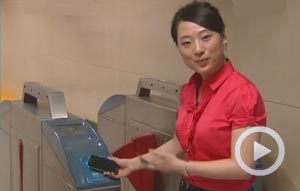Sunny days ahead for solar projects
Updated: 2013-07-20 07:22
By Li Shuo (China Daily)
|
|||||||||||
Second, the State Council has vowed to simplify the application process for projects. The existing process is aimed solely at utility-scale land-based solar farms. Under this arrangement, the National Development and Reform Commission has to give the go ahead for the operation of all solar projects regardless of their scale. For distributed project developers, who are normally individual households or small business owners, this means time-consuming paper work, which in the past deterred many applicants.
But the State Council guideline changes the provision for distributed projects from "being approved" by the NDRC to simply "notifying" the NDRC, significantly reducing the time needed to complete the process.
Third, a series of special programs will be introduced to scale up distributed installation, the most prominent being the one to establish 100 distributed solar demonstration zones. Apart from individual households, installations will also be encouraged at public places, industrial parks and commercial areas.
Last, unlike in the past, the State Council requires electricity generated from distributed solar projects to be included in the national electricity production and consumption accounting system.
With all these promising signs, one is bound to look at the financial incentives. In the guideline, the State Council proposes two measures to support distributed projects. A feed-in-tariff for distributed projects is likely to be announced, according to information available to Greenpeace as an existing solar project owner.
The State Council is also likely to increase the renewable energy surcharge in accordance with the pace of the solar industry's development. The current charge is 0.008 yuan for every kilowatt-hour (kWh) consumed by end users, which is channeled to the Renewable Energy Fund that is dedicated to financing the renewable energy fee-in-tariff. Since there is a significant gap between the REF and the demand for renewable energy generation, a lot of renewable energy project owners are getting delayed payments. There is an urgent need to resolve this financial gap.
Speculation is rife that the surcharge will be doubled to 0.016 yuan per kWh. If that indeed happens, it will relieve the pressure on the REF and secure financial returns for project developers.
Let us hope the State Council guideline is the beginning of more promising policies and that sunnier days are ahead for China's distributed solar power industry.
The author is a Greenpeace climate and energy campaigner.
Related Stories
Hope of solar solution brightens horizon 2013-07-19 09:17
Taking the heat off the solar dispute 2013-07-19 07:08
China imposes anti-dumping duties on US solar products 2013-07-18 17:36
Solar power capacity set for boost 2013-07-16 16:25
Some solar companies see brighter first half 2013-07-10 07:17
Today's Top News
UK, Ireland join forces to lure more Chinese visitors
Chinese police question employee of AstraZeneca
Quake in NW China kills 89, injures 700
Kate gives birth to a baby boy
New visas to boost family reunions
Huawei launches mobile app contest in EU
China to implement stricter air quality controls
China's FX purchases decline
Hot Topics
Lunar probe , China growth forecasts, Emission rules get tougher, China seen through 'colored lens', International board,
Editor's Picks

|

|

|

|

|

|





